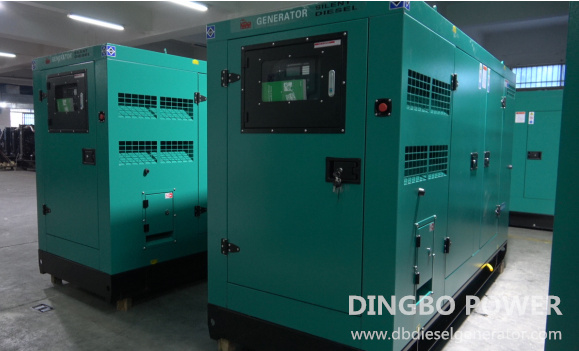dingbo@dieselgeneratortech.com
+86 134 8102 4441

- Home
- Products
- About Us
- Service
- News
- Technical Support
- Contact Us
dingbo@dieselgeneratortech.com
+86 134 8102 4441
Mar. 27, 2025
Diesel generators can be used as the main power source in places that are not powered by a power grid or as a backup in case of a power outage. They are not only suitable for large establishments but also for homes and small offices. However, there’s a common idea that diesel-powered generators are noisy. How to ensure that it stays at a reasonable sound level? In this article, we will share some effective solutions to reduce the diesel generator noise.
The noise generated by diesel generators primarily stems from two sources. One is mechanical noise produced by the diesel engine during high-speed operation, typically caused by friction and vibrations among internal components. The other one is airflow noise generated during the cooling process as air enters and exits the generator unit. To effectively reduce these noises, comprehensive optimization in design and material selection is essential.
The air intake, exhaust ports, and their connecting channels are critical structural components of low-noise diesel generators. They directly influence noise control while ensuring safe and stable operation within appropriate temperature ranges. The air intake is typically located at the rear end of the generator side and may be added to both sides if necessary. The exhaust port is usually positioned at the front upper section or both sides of the diesel engine.

Since noise primarily propagates through air, soundproof structures must prioritize airtightness to confine most noise within the acoustic enclosure. Key measures include:
Installing sound-absorbing materials on enclosure panels to reduce noise transmission.
Adding padding and rubber sealing strips to door frame gaps to minimize noise leakage.
Mounting wind deflectors in air intake/exhaust channels to block direct noise propagation and extend the sound-absorbing path, enhancing noise suppression.
Sound-absorbing materials applied inside the generator enclosure and airflow channels effectively reduce noise transmission. The longer the air inlet and exhaust channel, the more obvious the noise reduction effect. However, this will also cause the increase of wind resistance, affecting the ventilation effect. Therefore, the acoustic absorption design needs to find a balance between noise reduction and ventilation, and it is best to determine the optimal structural combination and parameters through experiments.
Common sound absorbing materials include glass fiber wool with holes in the surface and materials such as foam sponges. The former excels in sound absorption and high-temperature resistance, while the latter offers flexibility in manufacturing. The super-silent models may use thicker sound-absorbing materials and extended channels for better noise reduction, albeit with larger enclosure sizes.
Exhaust noise spans a broad frequency range, requiring a combination of industrial-grade silencers (for high-frequency noise via absorptive materials) and residential-grade silencers (for mid-low frequencies through gas turbulence, compression, and expansion).
Silencers, exhaust pipes and elbows can hinder exhaust emissions from diesel engines. Therefore, the back pressure must be carefully controlled in the structural design to avoid reduced power output or operational failures. Extended exhaust pipes require rigorous validation to ensure system stability.
In practical applications, sound insulation and sound absorption measures are indispensable. For example, installing acoustic enclosures around generators and deploying sound-absorbing panels near the unit can effectively reduce the impact of generator noise on the surrounding environment. Through these efforts, silent diesel generators not only enhance user comfort but also contribute to quieter living and working environments.
At Dingbo Power, we provide a wide range of diesel generators, gasoline generators and accessories. If you are looking for a soundproof power generator, feel free to contact us today. We can provide you with the best generator for your business or home.
Quicklink
Mob.: +86 134 8102 4441
Tel.: +86 771 5805 269
Fax: +86 771 5805 259
E-mail: dingbo@dieselgeneratortech.com
WhatsApp: +86 134 8102 4441
Add.: No. 10 Kechuang Road, High tech Zone, Nanning, Guangxi, China